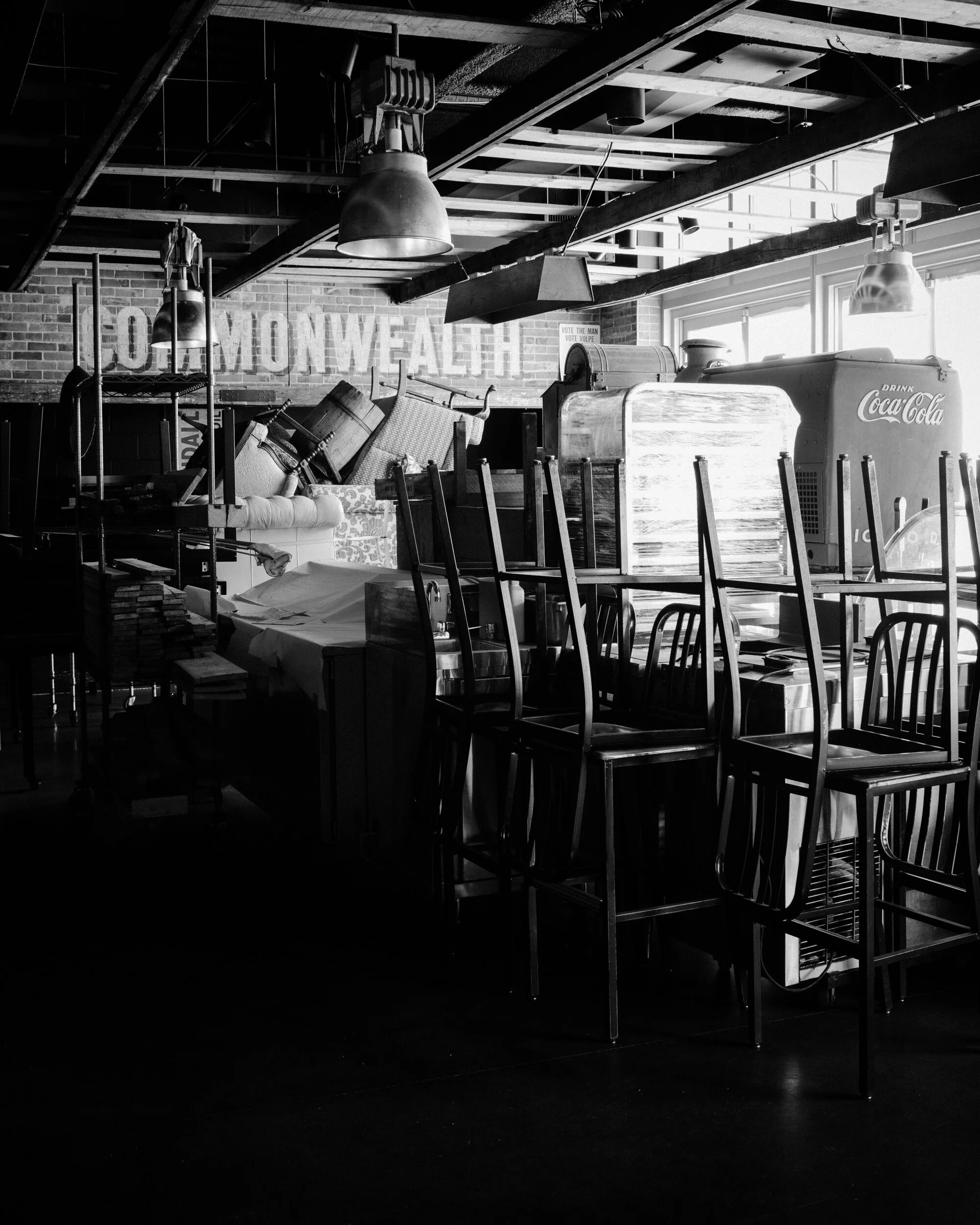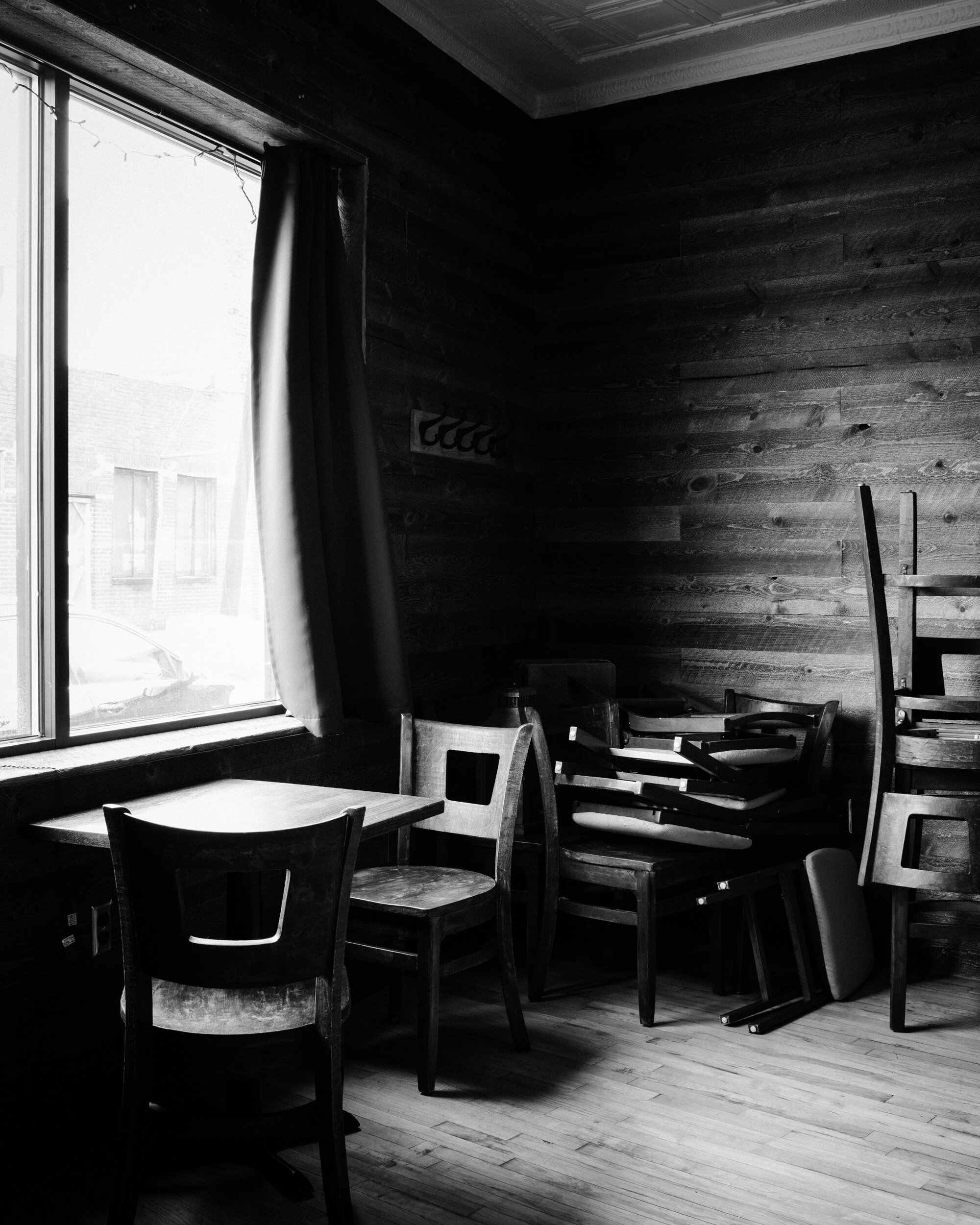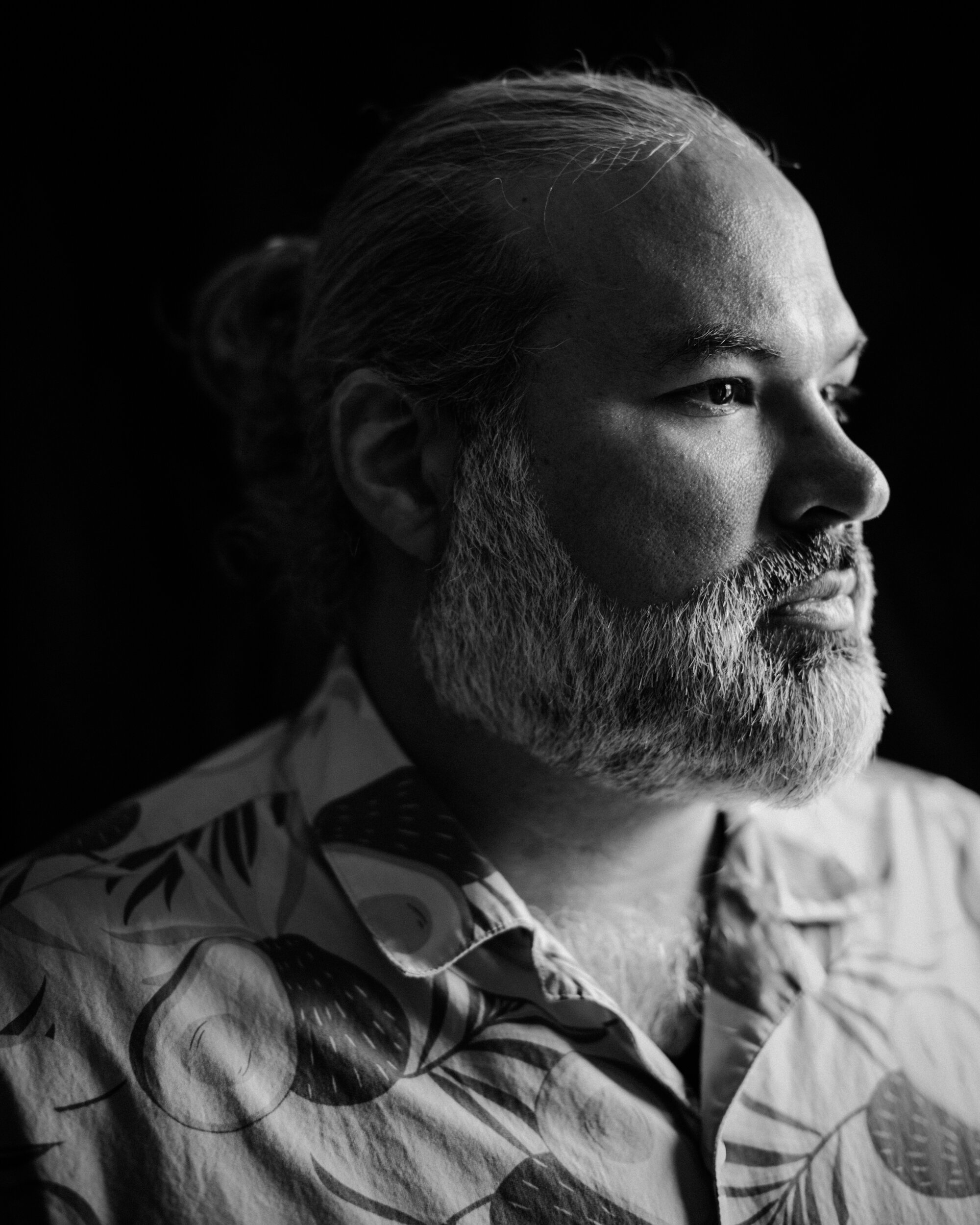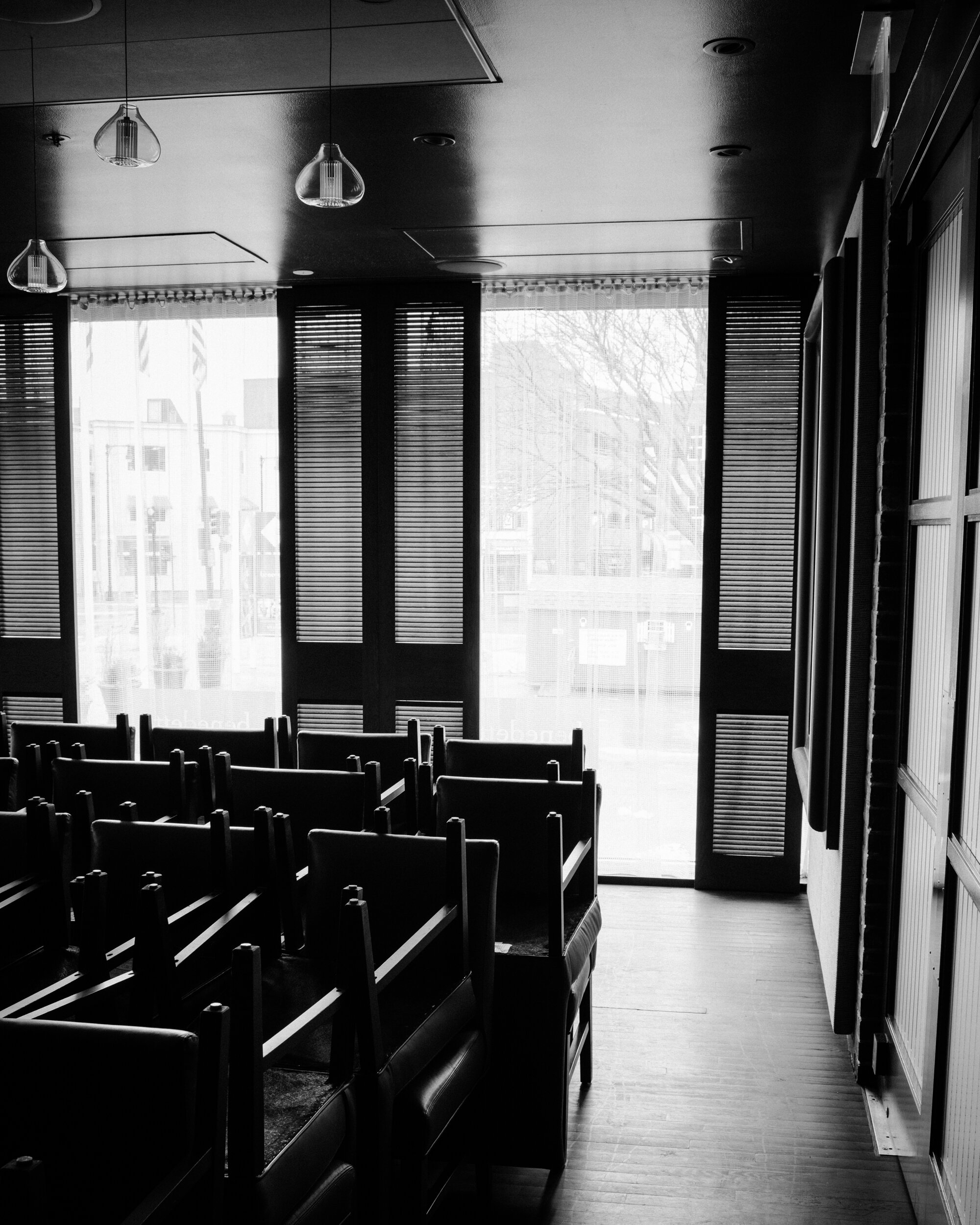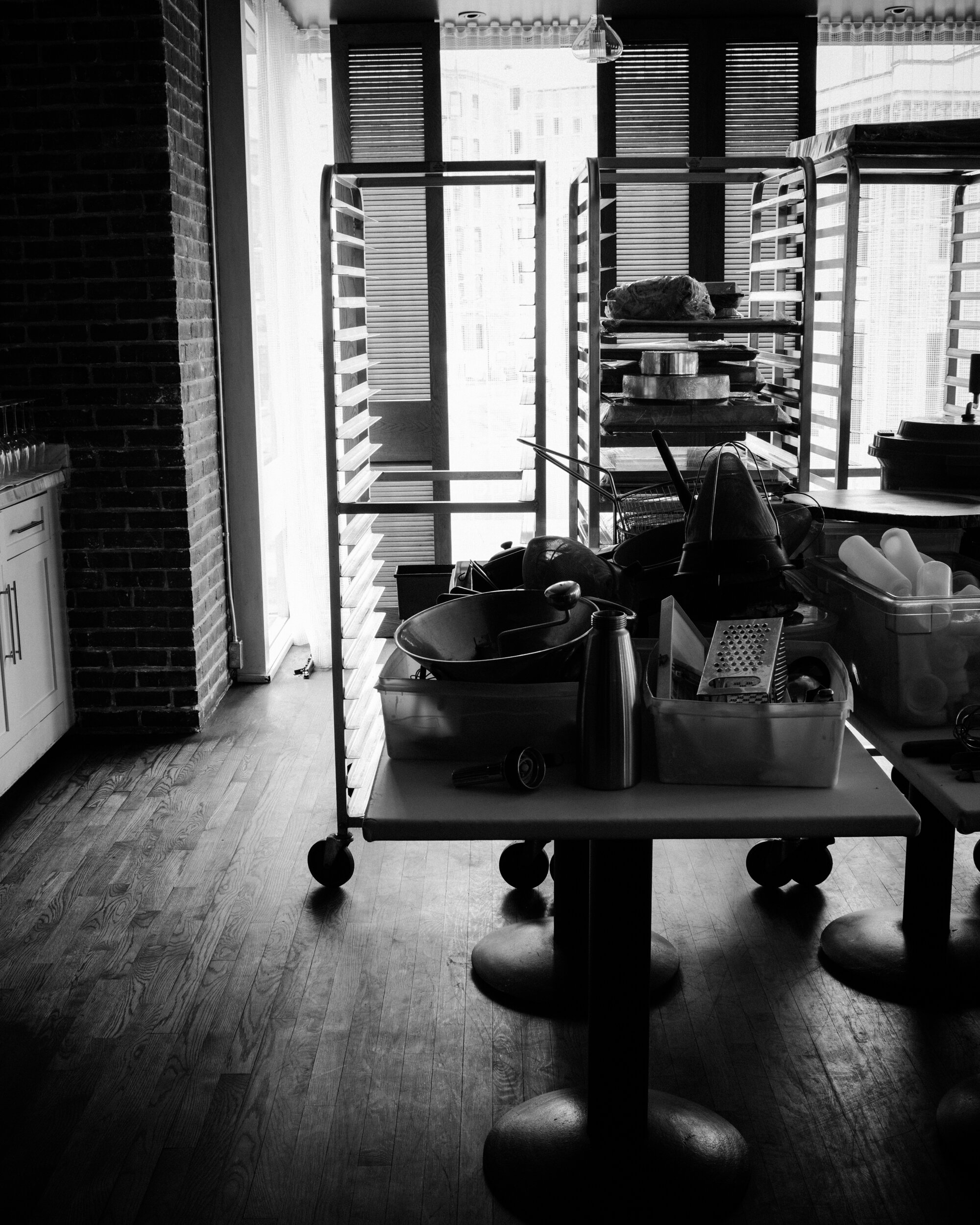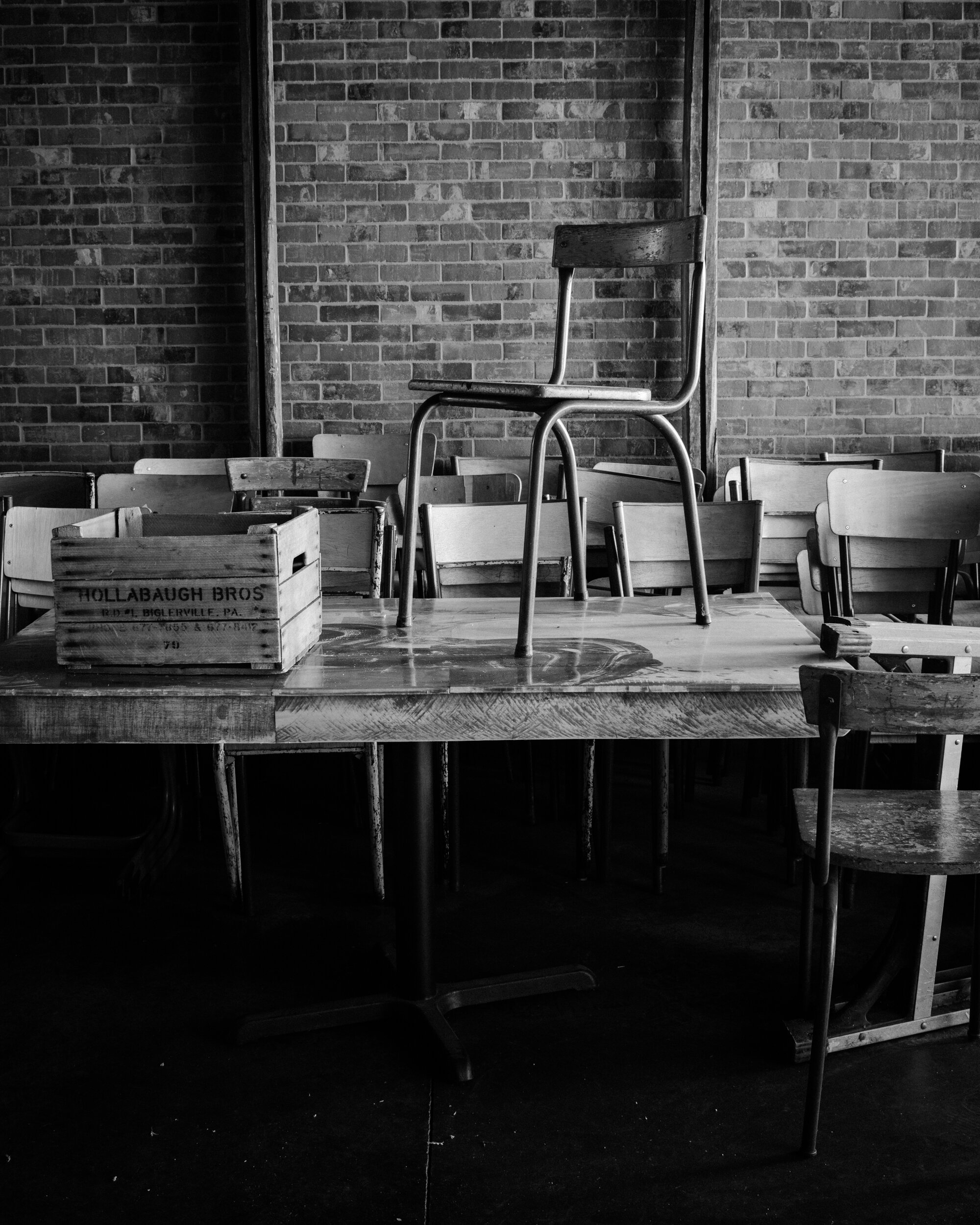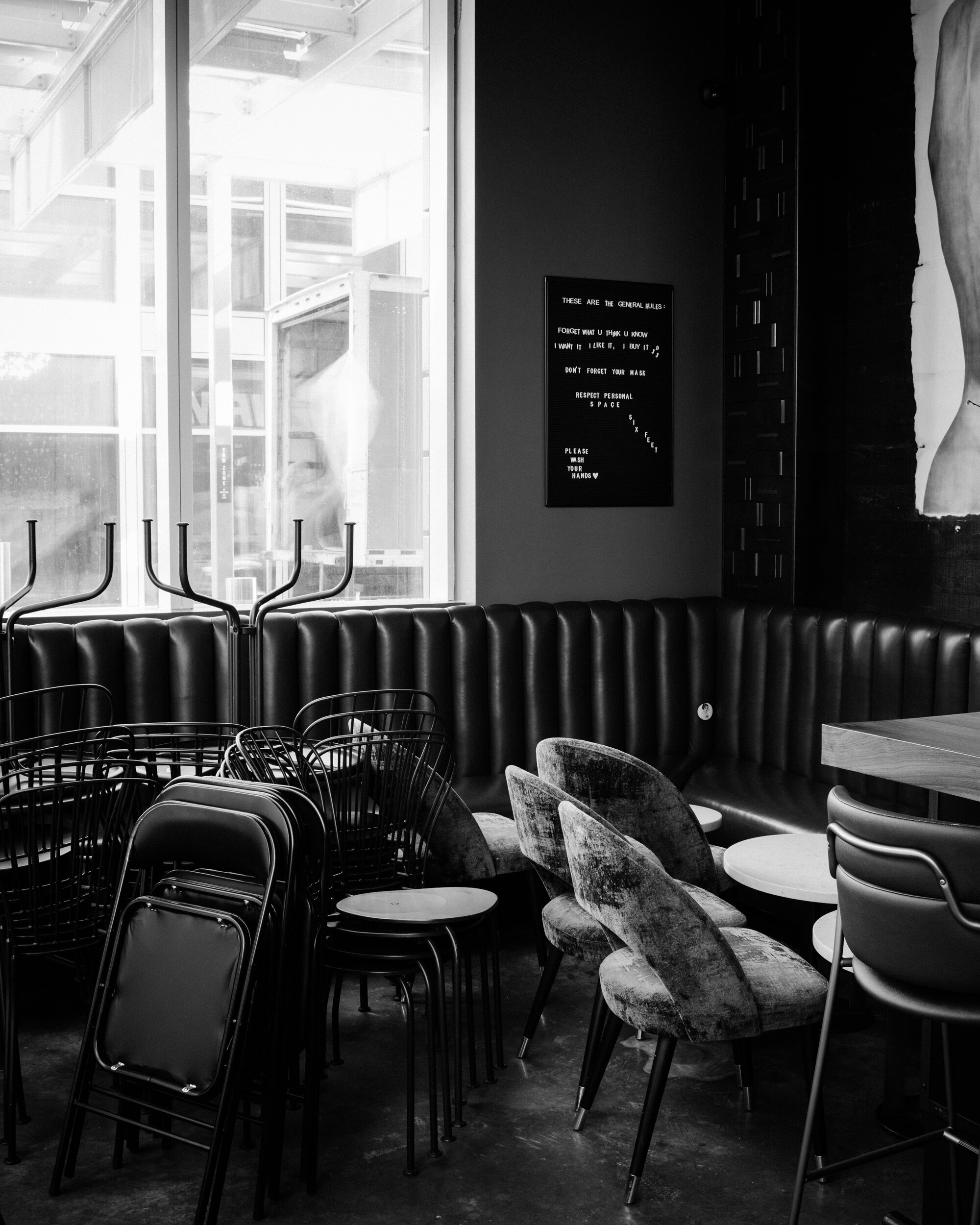Temporarily Closed... Opening Soon?
Photos by Michael Piazza
Some said they were hibernating, some were on pause. No matter what they called it, dozens of area restaurants had no choice but to close for the winter. Now they are trying to come back.
Note: Just before this issue went to press, President Biden signed the American Rescue Plan, which includes $28.6 billion for independent restaurant operators. This could end up saving many businesses that would not have survived and should make life so much easier for all.
“Every restaurant has its own story. My story goes three ways,” says Jose Duarte, chef-owner of Tambo22 in Chelsea, Trattoria San Pietro in Norwell and the shuttered Taranta in the North End. A respected veteran of the area’s dining scene, Duarte is one of dozens of chefs and restaurateurs who decided to close their businesses for at least some portion of the winter, a measure many are referring to as “hibernating.” Though each restaurant has its own story, the common theme uniting them is the devastation wrought on the industry by the COVID-19 pandemic and the myriad factors that made it untenable to remain open during New England’s cruelest season. And the common hope is for a spring awakening.
The hospitality industry has been one of the most severely impacted by COVID. According to the Massachusetts Restaurant Association, more than 3,400 restaurants in the state—about 22%—have closed permanently since the beginning of the pandemic. For the rest, the past year has been an unfathomable struggle, as they faced an enormous and ever-changing variety of challenges, from state-ordered closures to new safety protocols to shifting regulations to the constant risk of workers’ illness.
“Nothing was written in the books for [this]. We guess at it,” says Duarte. Calling on the creativity and resourcefulness that drives their profession, chefs pivoted from preparing meals for in-house consumption to sending their food on the road in carefully packed takeout containers to offering everything from groceries, meal kits, cocktails and online cooking classes. When they were finally allowed, restaurants set up patios for outdoor dining in late spring 2020 and reconfigured their dining rooms for well-spaced indoor dining. The lucky ones have been able to more or less break even.
“This pandemic has affected every restaurant profoundly but differently,” says Michael Pagliarini, chef-owner of Giulia and Benedetto in Cambridge. “Pivoting to other revenue streams can be helpful for a stopgap. We tried so many different things—pivots and take-outs, prepared to-go baskets. What’s right for restaurant A is not necessarily right for restaurant B.” Giulia, on Mass Ave between Porter and Harvard Squares, has a strong neighborhood following and remained open through the winter, offering takeout and on-site dining. Pagliarini completely reconfigured the dining room, building partitions between tables himself. A few hardy souls even enjoyed meals on the sidewalk in front of the restaurant despite the cold. Benedetto, in Harvard Square’s Charles Hotel, went into hibernation just before Christmas.
“Like so many restaurants, we enthusiastically reopened in the summer,” Pagliarini says. “It very quickly became evident that once outdoor dining wasn’t an option there simply was not enough public confidence to come out and dine safely. It was too much pressure on our managers and our staff to operate safely to keep open.”
Steve “Nookie” Postal, chef-owner of Commonwealth in Kendall Square and Revival Cafe + Kitchen in Cambridge, Somerville and Boston, was among the first, if not the first, to decide to hibernate. In fact, he maintains that his wife coined the term. Situated in the heart of one of the country’s most vital tech hubs, Commonwealth depends heavily on after-work business, corporate functions and holiday parties. With all of that gone, Postal says, his plan since last spring was to close once there was no outside dining. “For me it was an easy decision,” he says. “It was, ‘Lose money or lose money. Which way can you lose less money?’” Because Revival has an entirely different business model it has been able to remain open, for takeout only. “We’re going to make it through this,” he says of the cafés. At Commonwealth, the mantra has been “Make it to May,” when he hopes to reopen.
It is no exaggeration to say that independent restaurants are facing an existential threat. With little or no business, and certain fixed costs that have to be paid even during hibernation, restaurateurs’ financial concerns have been unrelenting. Paycheck Protection Program (PPP) loans available under the 2020 CARES Act were helpful to those who received them, but their value was limited. Massachusetts state grants, announced in January, reached far fewer businesses than the earlier federal round. And though restaurant owners say they are hopeful about a second round of federal aid, working its way through Congress as of this writing (February), it has been much too slow in coming.
But that is only one piece of the story—albeit a significant one. Restaurant work is physically demanding with long, irregular hours. For people who thrive on the energy of the kitchen, or interaction with customers, though, having to stop suddenly was devastating. “I’ve been working since I was a teenager. I’ve never not worked,” says Haley Fortier, owner of haley.henry and nathálie wine bars in Downtown Crossing and Fenway, respectively. Both spaces feature natural and small-production wines along with tinned fish, ceviche, crudo, cheese and charcuterie at haley.henry and fresh, seasonally inspired bites at nathálie. Fortier decided to shut both bars for the winter after outdoor dining became impossible, largely because operating at 25% capacity in her already-small spaces (30 seats at haley.henry, only slightly more at nathálie) made no sense financially. And her devoted clientele, who relished the outdoor space even in inclement weather, were reluctant to come inside. “When everything just stopped, the silence was deafening. It took me five to six days to settle down. I didn’t know what to do with myself,” she recounts.
Following festive outdoor events at both spaces during the week before Christmas, Fortier has been selling wine and tinned fish online and holding wine tastings on Zoom. “I’m staying busy because I’m planning for what’s comingup in a couple of months—hopefully reopening—filling out grant applications, going through our entire inventory, so when we come back we can start fresh with fresh menus,” she says. “It will feel like it’s a new chapter.” She also spent time in Vermont, where her partner has a home. And she has kept in touch with her employees, helping those who need it. Though most have been able to collect unemployment, it does not match their working income. “My clients have been really generous with my staff,” she adds. “We have a really good support system.”
When restaurants were first ordered to close, in March 2020, “I couldn’t sit still. I’m someone who always has to be doing something,” says Dee Steffen Chinn, pastry chef for Big Heart Hospitality Group, which includes Fenway-area Sweet Cheeks Q, Tiger Mama, Orfano and Fool’s Errand bar. So she did what she loves: She baked. Then, as an experiment, she posted a dessert menu on Instagram with a deadline for ordering. The response was immediate and pretty overwhelming. It took her a couple of hours just to sort through and reply to the orders that flooded in. “It started with people who knew where I work and love what I do and follow me on Instagram,” she says. From there it spread organically.
In the earliest days Chinn offered “DEE-ssert” boxes containing 12 treats—four each of three items such as salted caramel pretzel brownies, mini carrot cakes, berry oat bars and Fruity Pebble cookies, plus a cup, like tiramisu or coconut panna cotta with citrus salad—for $25. She also sold custom cakes. She and her husband delivered everything to their customers.
Chinn returned to Big Heart in late spring, when restaurants could open for outdoor dining. Orfano went into hibernation in October; Tiger Mama began its hibernation on January 1. Sweet Cheeks was open for takeout only through the winter, and Fool’s Errand has operated as a pop-up wine shop throughout the pandemic. Though Tiger Mama and Orfano’s reopening dates are still up in the air, there are always desserts on the takeout menu. Chinn has continued to offer custom cakes to private customers, which she still delivers, but now the proceeds support Big Heart.
When we spoke in early February Duarte said he was “idling, waiting and assessing what’s going to happen,” though he was hardly idle. Tambo22, which he opened with two partners in February 2020 to solid bookings and very positive reviews but what turned out to be terrible timing, had not been open long enough to have built up an audience for takeout at the time of the initial lockdown. After reopening in the late spring for outdoor dining, and having to close briefly due to a few COVID cases, the restaurant, which features Peruvian-inspired cuisine, closed for the season on December 20, 2020. Roughly a month and a half into its hibernation, Tambo22 started preparing meals for families of local schoolchildren dealing with food insecurity, through Rescuing Leftover Cuisine Massachusetts. Once a week Duarte and his partners opened the kitchen to prepare 255 meals. The restaurant was paid enough to help defray some of the costs, including one kitchen worker for a few hours per week. The restaurant also received a grant from the city of Chelsea that has helped to fill the “hibernation gap.” Tambo22 opened for three nights over Valentine’s Day weekend because, Duarte explains, the holiday is restaurants’ busiest of the year. At the beginning of that week Governor Charlie Baker had relaxed capacity restrictions from 25% to 40%; in a dining room like Tambo22’s, which only holds about 30 people, that makes a significant difference.
Taranta, which Duarte opened in the North End in 1990, is a COVID casualty for now. Unable to renegotiate his lease on the expensive real estate, he was forced to close the beloved restaurant in August 2020. But he is hoping to reopen in a new location. When we went to press, he was planning to reopen Tambo22 on April 1.
Hibernating chef Anthony Caturano temporarily shuttered his four restaurants—Prezza in the North End, Tonno, in Gloucester and Wakefield, and Blue Ox in Lynn—in December. “With the restrictions, it didn’t make sense to operate at 25%,” he explains. And after summer and fall seasons punctuated by two brief closures due to employees’ exposure to the virus, which left everyone exhausted, he says he couldn’t help but wonder, “Should we even be out and about and be open?”
Like Duarte, Caturano did open his restaurants for Valentine’s Day weekend, with limited seating in the restaurants and takeout dinners for two. He had planned to close again for the February school break and re-open all four restaurants on March 1, but by mid-February he had received his PPP loan and COVID numbers in the state were coming down, so he and his team decided to keep the restaurants open, with a reduced schedule to start. He does not expect to be able to hire back all 110 employees (down from 150 a year ago) and anticipates that business will be slow initially, but he feels lucky that he has been able to weather this period. “Once we open, we have such great and loyal followers, regular clientele, I’m really hoping they will get behind us again and get us through the summer,” he says.
By the time this issue is in your hands—or on your screens—outdoor dining, which all of the chefs and restaurateurs interviewed believe will be key to their survival, should have resumed. The next round of federal aid, larger than the first, should be at least on its way. And restaurant workers who want them should have received their COVID vaccinations.
But those in the business believe restaurant dining will be changed, maybe forever, by the COVID experience. “After 9/11 flying was never the same,” says Postal. “After this is over, things are going to be different.” For one thing, he believes, “It’s going to be harder to get people to leave their houses. People will still go to restaurants, but this is messing with people’s psyches. This is messing with a lot of things.” In Commonwealth’s neighborhood, it is unlikely that all those offices populated by the tech companies will return to full occupancy five days per week in the near term. But Postal is optimistic. “I’m looking forward to reopening, doing things differently. I’m using this opportunity to tighten things up,” he says.
Pagliarini, too, believes people’s habits will change. He anticipates more demand for takeout and prepared foods, and thinks some restaurants may decide they prefer that model.
Benedetto is not one of those. “I’m still holding out hope that restaurants as we knew them are still so important to our social fabric and to our neighborhoods that the demand for them will come back. What we all want to get back to is what we’re good at, what we’re built for: creating service in the dining room. Confidence of the dining public is key to successful reopening. When people regain their confidence, we’ll be there,” he promises.
tambo22chelsea.com
trattoriasanpietro.com
benedettocambridge.com
commonwealthcambridge.com
haleyhenry.com
nathaliebar.com
bighearthospitality.com
prezza.com
tonnorestaurant.com
theblueoxlynn.com
This story appeared in the Spring 2021 issue.

